
"All changed, changed utterly: A terrible beauty is born." This emphatic refrain from the elegiac poem Easter, 1916, by W. B. Yeats recalls a revolutionary event in Ireland's struggle for independence. In New Natures: A Terrible Beauty is Born, curator Ravi Agarwal reconfigures the unsettling sense of urgency and uncertainty encoded within the prescient lines written over a century ago to draw attention to the pressing issue of our times: the escalating ecological crisis.
The exhibition brings together 17 artists, including Navjot Altaf, Ranbir Kaleka, and Ishan Tankha, among others, whose multivalent works across a spectrum of artistic practices and positions collectively reflect on questions of nature "to unearth relationships which form identity, language, politics, livelihoods, and worldviews." On view from the 3rd of February to the 15th of April at Goethe-Institut/Max Mueller Bhavan (MMB), Mumbai, the display, spread over the Natural History Section and lawns of the Children's Museum at the adjoining Chhatrapati Shivaji Maharaj Vastu Sangrahalaya (CSMVS), makes for an expansive, if somewhat disconnected viewing experience. The show is an iteration of State of Nature, a project initiated by MMB in 2018 to address and interpret the present ecological crisis.
In New Natures, artists engage mediums and materials in innovative ways. Mining their lived experiences or drawing upon reportage, archive, documentary, fictive and speculative modes, they bring to the fore the socioeconomic, political, and cultural conditions that have propelled us to the brink of the climate catastrophe. Marked by conceptual rigour and an affective depth, the works probe beneath the surficial excesses wrought by the exploitative processes of colonization, industrialization, and the accelerated pace of technological advances to uncover compelling micro-narratives that are often wilfully suppressed, ignored, or lost in the grand agenda of development.
Diese Geschichte stammt aus der August 2022-Ausgabe von Art India.
Starten Sie Ihre 7-tägige kostenlose Testversion von Magzter GOLD, um auf Tausende kuratierte Premium-Storys sowie über 8.000 Zeitschriften und Zeitungen zuzugreifen.
Bereits Abonnent ? Anmelden
Diese Geschichte stammt aus der August 2022-Ausgabe von Art India.
Starten Sie Ihre 7-tägige kostenlose Testversion von Magzter GOLD, um auf Tausende kuratierte Premium-Storys sowie über 8.000 Zeitschriften und Zeitungen zuzugreifen.
Bereits Abonnent? Anmelden

Parts, Wholes And The Spaces In Between
Sonal Sundararajan introduces Samira Rathod's free-spirited and rebellious explorations in the world of architecture, furniture and design.
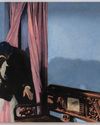
"The Fine Art of Going to the Pictures."
Dr. Banerjee in Dr. Kulkarni's Nursing Home at Chemould Prescott Road brings together 26 paintings featuring a series of dramatic scenes from Hindi and Bengali films. In conversation with Abhay Sardesai, artist Atul Dodiya talks about childhood trips to movie halls, painted figures gripped by tension, and the closeness and remoteness of cinematic images.
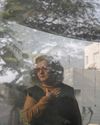
"To Finally Have Something of Your Own to Mine."
Dayanita Singh is the recipient of the coveted 2022 Hasselblad Award. Keeping the photograph at the centre, she speaks to Shreevatsa Nevatia about books, book objects, photo novels, exhibitions and museums.
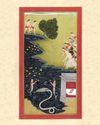
OF DIVINE LOSS
Shaurya Kumar explores the relationship between the subject and object of devotion, finds Aranya.

THE PAST AND ITS SHADOWS
Neha Mitra visits two shows and three artists in Mumbai.
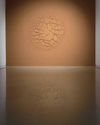
FORCE OF NATURE
Alwar Balasubramaniam dwells on absences and ephemeralities in his new work, states Meera Menezes.
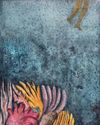
SHAPES OF WATER
Devika Sundar's works delineate the murky, malleable boundaries between the human body and the organic world, says Joshua Muyiwa.

INTIMATIONS OF INTIMACY
Sunil Gupta shares his journey with Gautami Reddy.
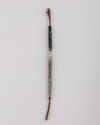
THE FRACTURED PROSPECT
Nocturnal landscapes as ruins in the making? Adwait Singh looks at Biraaj Dodiya's scenes of loss.
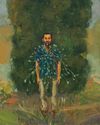
TEETERING BEYOND OUR GRASP
Meera Menezes traces Mahesh Baliga's journey from Moodabidri to London.